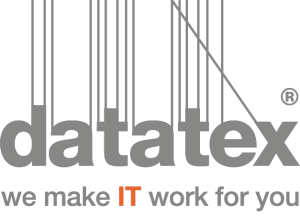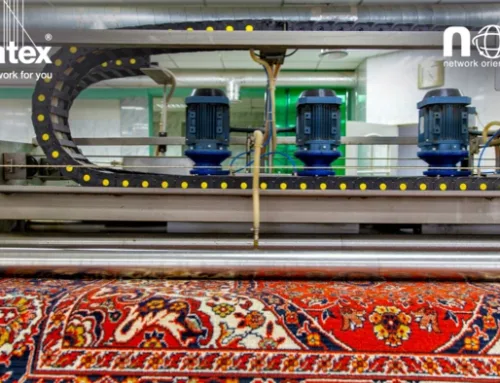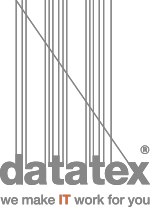How can Blockchain Optimize the Textile Supply Chain?
$1 trillion. That’s the estimated worth of global textile industry at this moment.
Apparel industry is a great player in the global economy and that’s why it requires a great solution in order to overcome numerous daily challenges, including issues with traceability, transparency, and sustainability throughout such a complex supply chain.
In our previous discussions, we introduced the transformative power of Apparel ERP and today we’ll introduce you to blockchain technology. Today, we delve into another groundbreaking solution: blockchain technology.
We will analyze the potential of blockchain in the textile industry, the benefits of its implementation, and how it can transform the entire supply chain through the implementation of blockchain solutions.
What is Blockchain Technology?
Blockchain is a decentralized database for the management of all types of transaction, divided into blocks that are managed, thanks to a system of cryptography, by the members of a network (nodes). These verify, approve and record in different blocks, all the data related to that specific operation.
The system is based on a peer-to-peer organization where every node in the network is entitled to approve or decline the transaction, without a central authority. Here the data are not stored on a single computer, but on all the connected servers. This makes it almost impossible to alter a block without the other nodes on the network noticing it.
In any case, a block is never overwritten, but the required change is stored in a new block that shows the change occurred. Hence, it is a non-destructive recording mode, as in the budget, where it is possible to keep track of history of all the changes occurred over time.
This technology, initially deployed in the financial world with Bitcoin, can actually be used in different fields, such as in the supply chain.
The Role of Blockchain in Textile Supply Chain Management
The textile industry is a global and complex supply chain that involves numerous stakeholders, including raw material suppliers, manufacturers, distributors, and retailers. Traditionally, this supply chain has faced challenges in terms of traceability, transparency, and accountability, making it difficult to ensure the authenticity and sustainability of products.
Blockchain technology has the potential to address these issues by providing a decentralized, secure, and transparent platform for tracking and verifying the movement of goods throughout the textile supply chain.
By leveraging the benefits of implementing blockchain technology, the textile industry can enhance traceability in the textile manufacturing sector which can be revolutionized with the adoption of blockchain technology. This technology can play a vital role in textile supply chain management, transforming the way the industry operates and optimizing various aspects of the supply chain.
At present, manufacturers spend much time and money in the management, often manual, of a very complex supply chain, identifying and selecting trusted suppliers, negotiating agreements, tracking products during the delivery and ensuring regular payments.
All this for the purpose of gaining trust and guarantee their reliability. Through the use of blockchain, these operations will be fully automated, by having all players share this information in a secure and verified system, without having to involve other external and expensive intermediaries.
Applications of Blockchain Technology for Apparel Industry
The adoption of a Blockchain technology, could allow to have a complete chronology of a product – from raw materials to dyeing, weaving and finishing , make- up and shipping, thus tracking its entire path as a whole.
The real time visibility of each production step allows to quickly identify the single product and to share information coming from suppliers, with your own network of customers. Thanks to the abovementioned immutability of the blockchain, this system is impossible to alter, due to the complex system of algorithms used, thus enhancing overall confidence in the presented information.
The bigger benefits for manufacturers are linked to an improvement of operational efficiency, to a reduction of production costs and to the creation of new business opportunities through the enabled enhanced transparency provided by blockchain solutions.
However, this opportunity depends on the ability of producers to collaborate with external factors, such as distributors, so that the information can quickly and efficiently spread among the organizations.
The primary need in order to get such a positive outcome is adopting a blockchain platform to ensure data integrity and trust among parties through coordination, with the definition of common standards between different realities: not an easy task given the complexity of the supply chain, whether textile or not.
Benefits of Implementing Blockchain Technology in Textile Industry
By embracing blockchain, textile businesses unlock a myriad of advantages. This innovative solution not only revolutionizes operational processes, but also instills trust across the entire value chain:
Traceability and transparency of blockchain in the Textile
Transparency and monitoring of industrial processes along the entire supply chain are fundamental issues and today the virtualization of procedures has allowed a real time access to the relevant information related to the product. The supply chain in textile sector is highly fragmented and it involves many actors that process the raw material in different processes, creating various intermediate goods.
Validate Quality and Authenticity in Textile Products
As for the quality, a key issue in textile, the blockchain technology can reduce the need of external inspections, while the network can assure the quality and the authenticity of the product, based on records that cannot be tampered with.
This approach may allow producers to improve the quality of their products over time, because all these details are stored permanently and will become the basis for future decision-making.
Keeping full visibility of data and sharing it with your network of customers, is a way to assure that company’s data is reliable and transparent. As example, the Lot Tracking function, supported by Datatex ERP System NOW, allows to track the quality of the production processes along the entire supply chain.
Increased efficiency with Blockchain in the Textile industry
Blockchain can streamline the supply chain by automating processes, reducing paperwork, and facilitating faster and more accurate data exchange among stakeholders.
Enhanced traceability in the Textile
Blockchain can provide a secure and transparent record of every transaction and movement of goods, allowing for the tracking of products from raw materials to the final consumer.
Reduced risk of counterfeiting
Blockchain’s secure and tamper-resistant nature can help combat the issue of counterfeit goods in luxury fashion, ensuring the authenticity of products and protecting brand reputation.
Enhanced sustainability
Blockchain can enhance sustainability efforts by providing a transparent and traceable record of the environmental and social impact of the supply chain, enabling stakeholders to make more informed decisions.
Potential of Blockchain and Fashion Industry: a key to challenges in a world of Apparel
Blockchain technology offers great potential for the textile industry to improve supply chain management and enhance traceability and transparency in the fashion industry.
By implementing blockchain technology in the textile supply chain, stakeholders can ensure the authenticity of products, reduce the risk of counterfeit goods, and promote sustainability in the textile sector. With the use of smart contracts, the entire supply chain from raw material sourcing to apparel production can be tracked in a transparent and traceable manner.
The emergence of blockchain technology in the textile industry is one of the keys to a more sustainable future for the textile and clothing supply chain. By utilizing blockchain in the textile industry, fashion brands can create a more transparent supply chain that prioritizes traceability and sustainability.
This not only helps in combating the issues of counterfeit products but also promotes ethical practices within the luxury fashion industry which can be enhanced with blockchain technology for better supply chain management in garment industry.
As the textile industry continues to evolve, the integration of blockchain technology holds immense promise for luxury brands. By harnessing the power of this innovative technology, the industry can enhance traceability, improve supply chain transparency, and increase sustainability, ultimately transforming the way the entire supply chain operates and delivering tangible benefits to all stakeholders.





